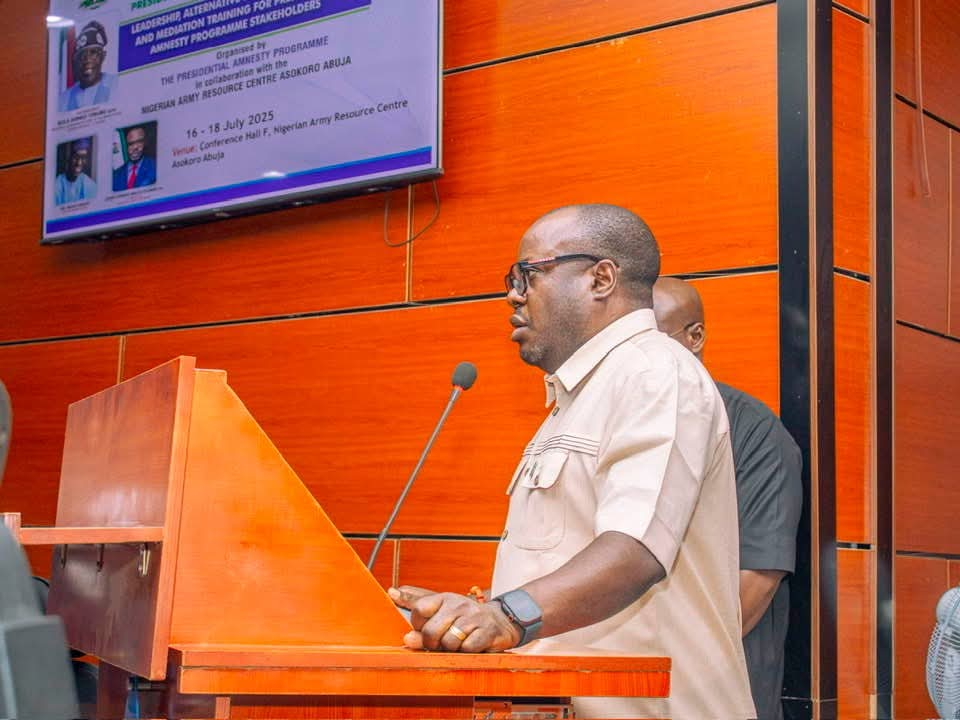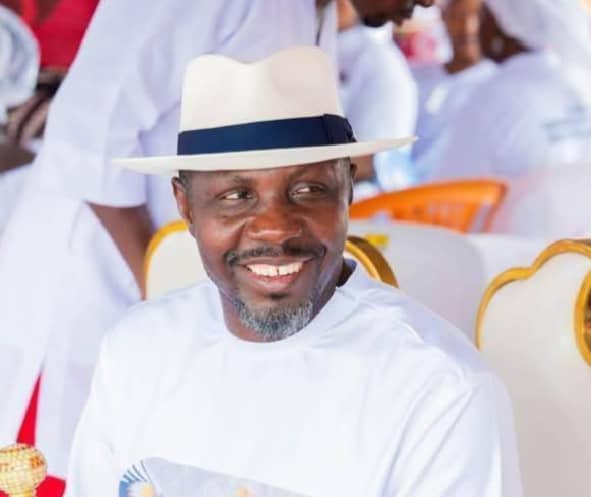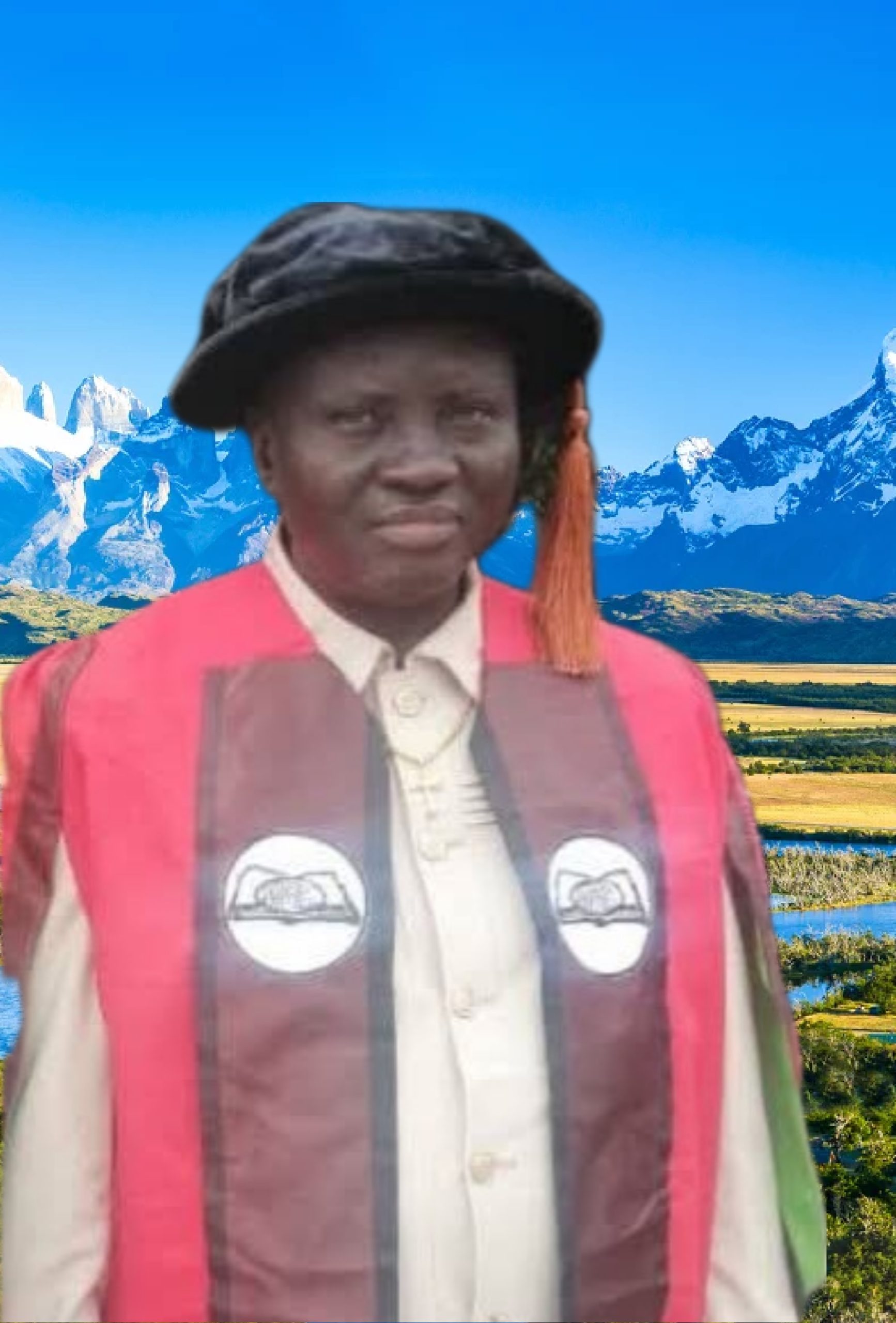Columns
Nigeria’s N121.67 Trillion Debt Worrisome

Nigeria’s N121.67 Trillion Debt Worrisome
by Afe Babalola
Nigeria’s external debt is the largest amongst all sub-Saharan African nations, despite the fact that it received debt waivers from the Paris Club, London Club or from Independent Creditors. The arrears of this debt have accumulated inexorably, putting Nigeria in the bad books of international financial communities. Also, Nigeria’s huge debt profile has negatively affected its economy, hence, a big reason to worry.
Nigeria’s vivid debt history
The Pre-independence Debts
Nigeria’s public debt dates back to its colonial rule. The first recorded public borrowing was in 1923-24 when a loan of £5.7 million was taken by the Nigerian Protectorate at an annual interest rate of 2.5 percent and with a structured repayment time of 20 years. In 1927, another £1 million loan was taken from the Bank of England to finance the construction of the Lago-Port Harcourt Railway.
This loan was guaranteed by the British Government and was repaid in 1938. In 1936, the Nigerian Protectorate took another loan of £4.89 million. From 1946 to 1948, it took additional loan of £5.74 million. In 1958, the Nigerian Protectorate took a loan of £28 million from the International Bank for Reconstruction and Development, IBRD, which is also known as the World Bank to finance the expansion of the Kainji Dam and the Ugheli Power Station. This was repaid in 1978.
By the end of the Colonial rule, Nigeria had a national debt of $31 million at an interest rate of 3.5 percent per annum and a repayment period spanning two decades.
Post Independence Debts
Following its independence in 1960, Nigeria continued incurring both domestic and external debt to finance its development needs. It borrowed from the World Bank, the International Development Association, the International Monetary Fund, the African Development Bank, the European Economic Community and bilateral creditors such as the United States, Britain, France, Germany, Japan and China. The main sources of domestic loans are the Central Bank of Nigeria, the Nigerian Industrial Development Bank, the Nigerian Agricultural and Cooperative Bank, and the Nigerian Bank of Commerce and Industry.
1. Debts under the First Republic
It is noteworthy that Nigeria took no external loan from 1963 to 1966 when Dr. Nnamdi Azikiwe was president.
2. Debts under the Military Rule from 1966 till 1979
Related News
Shettima visits Shell stand at 30th Nigeria Economic Summit in Abuja
Nigeria’s oil exploration drops 6.7% due to limited investment — Report
Nigeria’s foreign reserves rose to $39bn in October — Cardoso
Post independent. It was under the military that Nigeria started taking foreign loans.
a. Under the rule of General Yakubu Gowon from 1966 to 1975, Nigeria’s debt profile rose by $1.687 billion.
b. From 1975 to 1976 under the rule of General Murtala Mohammed, Nigeria’s debt dropped from $1.69 billion to $1.33 billion.
c. Under the rule of General Olusegun Obasanjo from 1976 to 1979, Nigeria’s debt increased by $4.90 billion.
3. Debts under the Second Republic: Nigeria’s debt increased by $11.33 billion from 1979 to 1983 under the democratic leadership of Alhaji Shehu Shagari
4. Debts under the Military Rule from 1983 to 1993
a. Under the rule of General Muhammadu Buhari from 1983-1953, Nigeria’s debt increased by $1.078 billion.
b. Under the rule of General Ibrahim Babangida from 1985 to 1993, Nigeria’s debt increased by $12.04 billion.
5. There was no recorded debt under the Third Republic
6. Debts under the military rule from 1993 to 1999
a. Under the rule of General Sani Abacha from 1993 to 1998 Nigeria’s external debt dropped from $30.7 billion to $30.31 billion.
b. Under the rule of General Abdulsalami Abubakar from 1998 to 1999, Nigeria’s debt dropped from $30.32 billion to $29.1 billion
7. Debts under the Fourth Republic
a. Chief Olusegun Obasanjo met a foreign debt of $28.04 billion and domestic debt of N798 billion in 1999. Chief Obasanjo was worried about the foreign debts, hence he embarked on a world tour meeting with the Paris Club and other creditors of Nigeria and he pleaded for the forgiveness or reduction of Nigeria’s debts. This led to a huge reduction of Nigeria’s external debt from $28.04 billion to $2.11 billion. Consequent upon his efforts and prudent management, he left the presidential office in 2007 with an external debt of $2.11 billion and domestic debt of N2.17 trillion. This was a total of 31.8% decrease in the Federal Government’s debt from N3.55 trillion to N2.42 trillion.
b. President Umaru Musa Yar’Adua ruled from 2007 to 2011. Within this time, domestic debt increased from N2.17 trillion to N5.62 trillion. Foreign debt increased from $2.11 billion to $3.5 billion. That is an increased debt from N2.4 trillion to N5.62 trillion in four years. Dr. Goodluck Ebele Jonathan completed President Yar’Adua’s tenure. In that one year, the Federal Government debt increased from N4.94 trillion to N6.17 trillion.
c. Dr. Goodluck Jonathan commenced his tenure in office in 2011 with a foreign debt of $3.5 billion and left with a debt of $7.3 billion. Domestic debt increased to N8.4 trillion by 2015. This translates to an increase in national debt from N6.17 trillion to N9.8 trillion.
d. President Muhammadu Buhari increased the domestic debt from to N8.4 trillion to N19.24 trillion and external debt from $7.3 billion to $33.62 billion.
e. On assumption of office, Asiwaju Bola Tinubu inherited a domestic debt of N19.24 trillion and external debt of $33.62 billion. By the end of the first quarter of 2024, Nigeria has domestic debt of N65.65 trillion and external debt of $42.12 billion, totalling N121.67 trillion. In addition to this, the states owe a total of N4.07 trillion.
IN 2020, DEBT SERVICE COSTS ACCOUNTED FOR A STAGGERING 83 PERCENT OF REVENUE. BY JANUARY 1, 2024, THE FEDERAL GOVERNMENT’S REVENUE WAS N449.7 BILLION WHILE IT SPENT N755.9 BILLION ON DEBT REPAYMENT. NIGERIA’S DEBT IS NOW 168% OF ITS REVENUE.
THE SAD REALITY IS THAT NIGERIA IS NOW REPAYING DEBTS WITH DEBTS, SINCE ITS REVENUE CAN NO LONGER PAY ITS DEBT.
It is therefore worrisome that Nigeria is reported to be taking more debts. In September 2024, the world bank approved a $1.57 billion loan for Nigeria to support its health and education sectors and help provide sustainable power. In June 2024, the World Bank approved $2.25 to be disbursed to Nigeria for Economic Stabilization. In the same year, Nigeria took $8.8 billion debt to be repaid with unexplored oil. This is a total of $12.62 billion in addition to already existing debt.
The questions are:
1. What have we done with all these loans and what are we proposing to do with these additional loans?
2. Where will the Federal Government draw the line on financing the Nigerian economy with debt?
3. When are we repaying the loans?
4. Where are we going to get the money to repay the loans?
The several trillions of Naira taken as loan has not reflected positively on the economy. Where are the projects on which we spent all these monies? Regrettably at 64 years post-independence, Nigeria still suffers from infrastructural decay, declining foreign investments, declining educational standards from infrastructural deficits, increase in the rate of poverty, unrivaled rates of inflation and an astronomical fall of the value of the Naira in international market.
A passionate plea to rescue Nigeria
The Nigerian debt burden has retarded internal development and hindered economic growth in Nigeria. Most government funds are diverted towards debt servicing rather than essential public services. Governments have also taken to financing their debts through other debts. All these have exacerbated the poverty rate in Nigeria leading to the conclusion that Nigeria urgently needs an economic rescue.
Recommendations
In view of the dire state of the economy of Nigeria, the Federal Government should:
1. Adopt Chief Obasanjo’s laid down example by approaching the lenders for total forgiveness of the debts or reduction, and in any event the waiver of the payment of the interests on the debts.
2. Set up committees to investigate and ascertain the actual amounts borrowed, the purposes for which they were borrowed, the accounts into which the monies were paid into and the projects for which the debts were utilised.
3. Enquire into whether it is true or not that Nigeria’s unexplored crude oil was sold in advance. If so, what the money was spent on.
4. Urgently revive national oil refineries to reduce the importation of refined oil in Nigeria. This will leave more monies in government coffers which can then be utilised in the repayment of our debts.
5. Reduce the cost of governance by adopting the practice in the First Republic where law makers regarded their positions as opportunities to serve and only took sitting allowances.
6. Place premium on infrastructural development and reduce recurrent expenditures on politics or governance.
7. Use all recovered proceeds of corruption to service national and international debts.
8. Encourage, promote and finance the development of the agricultural sector and discourage the mindset of Nigerians that politics is the only lucrative business in Nigeria.
All imaginable economic woes have visited Nigeria. However, there is still hope for our beloved nation. A hope that needs political will to thrive.
Columns
Chief Denis Otuaro, the Guiding Star of PAP

By: Professor Binebai
The Niger Delta has found a beacon of hope in Chief Dr. Dennis Otuaro, a leader of unimpeachable integrity, courage, and vision. As the helm of the Presidential Amnesty Programme (PAP), he has emerged as a champion of transformation, inspiring a region and a nation with his unwavering commitment to empowerment and progress.
In the realm of Nigerian leadership, there are those who leave an indelible mark on the sands of time, and Chief Dr. Dennis Otuaro is one such luminary. As the helm of the Presidential Amnesty Programme (PAP), he has etched a narrative of hope, redemption, and triumph, illuminating the path for the people of the Niger Delta. This tribute is a celebration of his extraordinary leadership, vision, and unwavering commitment to the cause of empowering the youths and transforming the region.
Chief Denis Otuaro’s stewardship of the Presidential Amnesty Programme (PAP) has indeed been a renaissance, a majestic sunrise after a long, dark night, as he infuses the initiative with the radiance of a new dawn.
Like the mythical Anansi, the wise and cunning spider of West African folklore, Otuaro’s leadership has woven an intricate web of hope and opportunity, capturing the challenges of the Niger Delta and transforming them into a rich mosaic of promise and progress. His vision, akin to that of the venerable Oracle of Delphi, has deciphered the complexities of post-conflict reconstruction, guiding the demobilised youths through the labyrinth of uncertainty, and into the bright light of empowerment and redemption.
Otuaro’s journey has been sustained by a resolute commitment to the cause, his leadership style a masterful blend of courage, wisdom, and compassion. His tenure has been marked by a symphony of progress, as the PAP, under his guidance, has orchestrated a harmonious balance of pacifism and pragmatism, transforming the region into a veritable Garden of Eden.
Like Athena, the Greek goddess of wisdom, Otuaro wields the power of transformation, his touch turning the arid landscape of despair into a lush oasis of hope and prosperity. His leadership has become a byword for sagacity, a testament to the transformative power of vision, courage, and compassion.
In the pantheon of Nigerian leaders, Otuaro’s name shall be etched alongside the greats, his legacy a shining testament to the indomitable human spirit, as he continues to weave a new narrative of hope, redemption, and triumph for the people of the Niger Delta.
The Niger Delta has found a leader of repute, a leader of courage, a leader of transformation, a leader of goodwill in the PAP. Let egocentric economic buccaneers and demonic agencies stop their campaign of calumny against this leader of glory.
To those who seek to undermine his efforts, we say: let envy and malice be silenced! Let the progress of the Niger Delta be the benchmark for greatness! Let Otuaro’s leadership be the inspiration for a new generation of leaders!
Columns
A Legendary Legacy: The Enduring Odyssey of High Chief (Dr.) Government Oweizide Ekpemupolo

By: Professor Ben Binebai
In the realm of Nigerian leadership, one name resonates with mythical significance – High Chief (Dr.) Government Oweizide Ekpemupolo, affectionately known as Tompolo. Born on 12 April 1971, in Warri, Delta State, Tompolo has etched his name in the annals of history, leaving an indelible mark on the Niger Delta region. As a former militant commander of the Movement for the Emancipation of the Niger Delta (MEND) and chief priest of the Egbesu deity, he has navigated the treacherous waters of war and peace, leveraging his remarkable journey to bring succour and development to his people.
Tompolo’s metamorphosis from a militant leader to a peace advocate is a testament to his unwavering commitment to the progress of the Niger Delta. His decision to embrace the Amnesty Programme in 2009 marked a turning point, as he laid down arms and picked up the mantle of transformation. Today, he is revered as a hero, celebrated for taming the turbulent waters of the Creek boys and settling major political crises in the region. By putting the Ijaw image on the Nigerian map, Tompolo has redefined the narrative, showcasing the rich cultural heritage and resilience of the Ijaw people to the world.
A nationalist and statesman emerging from the boiling pot of agitation in the Niger Delta, Tompolo has consistently demonstrated his commitment to the development and progress of his people. His agency operates in close collaboration with the government, working tirelessly to implement projects and initiatives that benefit the Niger Delta region. His leadership style is characterised by quiet strength, strategic thinking, and an unwavering commitment to the progress of his people. His efforts have earned him recognition and accolades from various quarters, solidifying his position as a dependable pillar of the Ijaw nation.
As the last voice of the Ijaw nation, Tompolo’s legacy continues to inspire hope and progress for generations to come. With institutions established for national economic stability and prosperity, his impact will be felt for years to come. Tompolo’s story serves as a beacon of hope and resilience, inspiring his people to strive for greatness.
God bless this emergent leader of the Ijaw nation.
Columns
YOUNA: WARRI CRIES FOR PEACE AND JUJUSTICE

By: Ben Binebai
In the Niger Delta region of Nigeria, a city cries out for peace, justice, and unity. Warri, a land of rich cultural heritage and economic significance, has been plagued by recurring crises, sparked by provocative actions and claims of ownership by the Itsekiri group. The cry of Warri is a call to action, a reminder that our diversity is a strength, not a weakness, and that our common humanity is worth fighting for.
The Ijaw, Urhobo, and Itsekiri communities have coexisted in Warri for centuries, sharing a rich cultural heritage and a deep connection to the land. Occasionally uniting but deeply disunited because power and hegemony have often overshadowed their shared humanity, the people of Warri yearn for a future where their differences are celebrated, and their commonalities are the foundation of their unity. Warri’s significance extends beyond its current boundaries, as it has been a hub of economic and cultural activity for centuries. Before 1952, Warri was a thriving commercial centre, with the Ijaw, Urhobo, and Itsekiri communities contributing to its growth and development.
The city’s strategic location and access to the Niger Delta’s vast resources made it an attractive location for trade and commerce. Understanding Warri’s rich history and cultural heritage is essential to finding a lasting solution to the crisis.
It is time for truth to prevail to offer a lasting solution to the Warri crisis. The canoe of godfatherism should be withdrawn for the rule of law and for peace and progress to triumph.
The lie of exclusive ownership of Warri resists termination due to several factors, including:
Outdated court judgments: The Itsekiri establishment continues to rely on outdated court judgments, such as the 1925 judgment, to support their claim of ownership, despite subsequent judgments repudiating its validity.
Lack of political will: Successive governments have failed to address the problem and take the right and just decision, allowing the crisis to persist.
Absolutist claims: The Itsekiri claim is absolutist, while the Urhobo and Ijaw claims are limited, recognising ownership of portions of Warri by other communities.
Historical narratives can be deeply ingrained*: People’s understanding of their history and identity can be shaped by long-standing narratives, making it hard to change their perspectives.
Emotions and biases can override facts: When emotions and biases are strongly tied to a particular narrative, people may resist changing their views, even in the face of contradictory evidence.
Power dynamics can influence narrative control: Those in positions of power may use their influence to shape and maintain certain narratives, making it harder to correct lies and misconceptions.
Moreover, leadership plays a crucial role in shaping the future of Warri. As the saying goes, “When leaders refuse to embrace sacrifice, society dies.” Leaders who prioritise the greater good, make tough decisions, and invest in the future can help build a more harmonious and prosperous society. It is time for the leaders of Warri to put the needs of their people first and work towards a brighter future.
The cry of Warri is a call to action, a reminder that our diversity is a strength, not a weakness. Let us work towards a brighter, more harmonious future, where the beauty of our differences is celebrated, and our common humanity is cherished. May the cry of Warri be heard, and may we rise to the challenge of building a better tomorrow for all its people.
